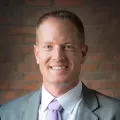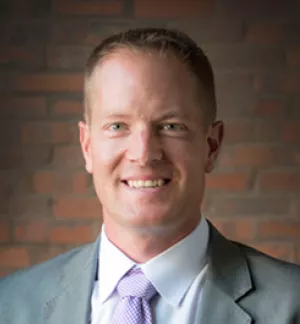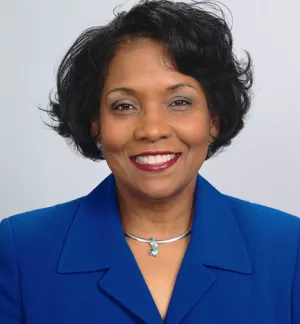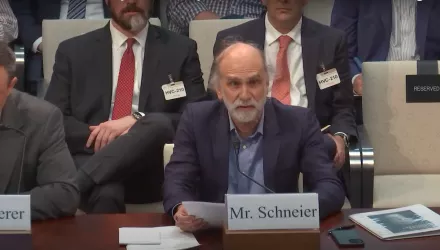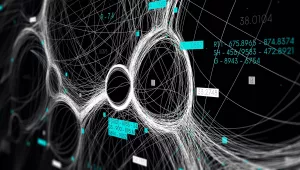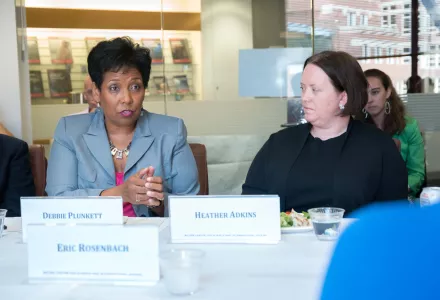
For Debora Plunkett, joining forces with the Belfer Center’s Defending Digital Democracy project was much more than an academic opportunity—it was her duty as an American. Russian meddling in the 2016 election “hit at the core of me as an American,” she said. “I am offended that anyone would try to limit, distort, or alter the rights of Americans to vote, and so I’m interested in helping to develop and deliver security guidance that will help campaigns better understand and respond to current-day cyber threats and vulnerabilities.”
As the former Director of the National Security Agency’s Information Assurance Directorate and now principal of the cybersecurity consulting firm Plunkett Associates, she has seen firsthand just how aggressively America’s adversaries try to hack into our critical systems. As the leader of NSA’s cyber defense, cryptography, and information systems security missions, she directed thousands of personnel across NSA’s worldwide presence and managed a multi-million dollar budget. World-class technology, she explained, is necessary but insufficient.
From covert military operations to political campaigns, Plunkett said the common weak link in cybersecurity is people. Cyber attackers exploit people who prioritize convenience over security. There are several simple steps, she noted, that ordinary users of information systems can take to greatly decrease the likelihood of becoming a cyber victim.
"A common misunderstanding about cyber threats is that you need to be a big fish in order to be targeted by threat actors,” she said. “This is false! Fact is that malicious actors can and do use the resources (computers, networks, infrastructures) of unwitting and seemingly average citizens in order to gain access to more lucrative targets, or to build capacity that might enable broader control of networks. No one is safe and everyone needs to be thinking about securing their communications.”
Despite headlines about massive breaches of personal data at Target and Equifax, Plunkett is worried that Americans still prize inter-connectedness over security-consciousness. “Having an Internet-enabled car might sound great, but having the auto access point exploited such that you no longer have control of your speed, direction, or destination is no longer a pipe dream.”
Growing up in Baltimore with her parents and three sisters, Plunkett did not dream of becoming a cybersecurity expert. After developing a love for biology in high school, she earned a Bachelor of Science degree from Towson University, and then an MBA from Johns Hopkins University and a Master of Science in National Security Strategy from the National War College. As a newlywed in 1984, one of her first significant purchases was a then brand new Apple IIc, which featured a memory of 128KB RAM.
Plunkett’s journey through the NSA was by no means a straight path. She started out as a “crypto traffic analyst,” analyzing foreign communications externals in search of patterns that would reveal identities. “That was very satisfying work for me—I love a good crossword puzzle!” She continued to focus on what is now called metadata as she progressed into leadership roles. “My real break into cybersecurity came in 1999, when I was asked to represent NSA on the President’s Council on Y2K, and a follow-on assignment working cybersecurity policy in the Administration of President Clinton and then President Bush.”
Among her many awards are the ranks of Meritorious Executive in the Senior Cryptologic Executive Service by President George W. Bush in 2007 and Distinguished Executive by President Barack Obama in 2012. In 2015, Plunkett was recognized with the Intelligence Community Equal Opportunity and Diversity Exemplary Leadership Award from the Director of National Intelligence and the Exceptional Civilian Service Award from the NSA Director.
When Plunkett’s not cracking codes or building firewalls, she’s often hunting for genealogical artifacts. “I enjoy trekking through cemeteries and going to state archives in search of clues and, when I’m really lucky, finding my family’s documents and photos,” she said. “I’ve had success in tracing one of my family lines to the 1830s, which is very exciting!”
Burek, Josh. "Spotlight on Debora Plunkett: Protecting America's Most Important Information." Belfer Center Newsletter, Belfer Center for Science and International Affairs, Fall/Winter 2017-2018.

